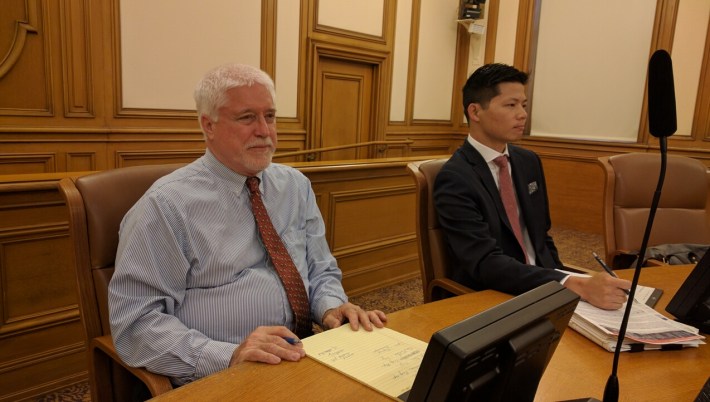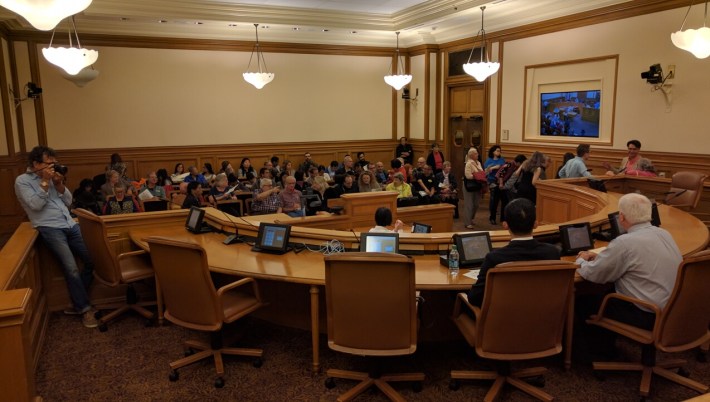
SFMTA, at long last, held its final hearing on the proposed Muni Forward safety and speed improvements to the L-Taraval. The two-hour meeting, which started at 10 a.m. at City Hall, was attended by some 60 people.
Streetsblog readers will recall the last large hearing for Taraval was held in February and, as with many of these big public hearings, there were outbursts, groans, and grumbles.
This meeting was more under control, thanks to Mike Hanrahan with the hearings section of SFMTA. "Two minutes is plenty of time if you’ve thought about what you want to say," he said to the audience, prepping them for the comment period. He then introduced Michael Rhodes, who gave some brief background on the project and explained some amendments. Almost immediately, grumbles came from the audience and someone tried to ask a question. Hanrahan reminded them the comment period is coming up and, "We can’t have interruptions."
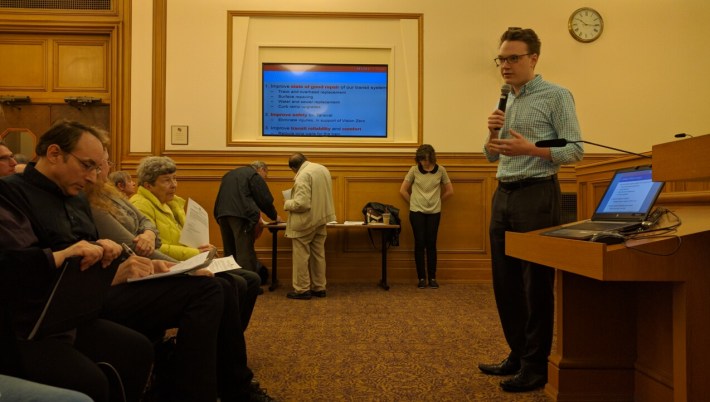
Rhodes (yes, the previous Streetsblog guy) was effective in outlining the situation: 46 pedestrian and vehicle collisions reported in the past five years. As Streetsblog readers will recall, Taraval is one of the most dangerous streets in San Francisco for pedestrians, in large part because it is the last remaining business corridor with streetcars but no boarding islands: 22 of those pedestrian collisions happened as people were getting off and on trains. Concrete boarding islands eliminate that danger.
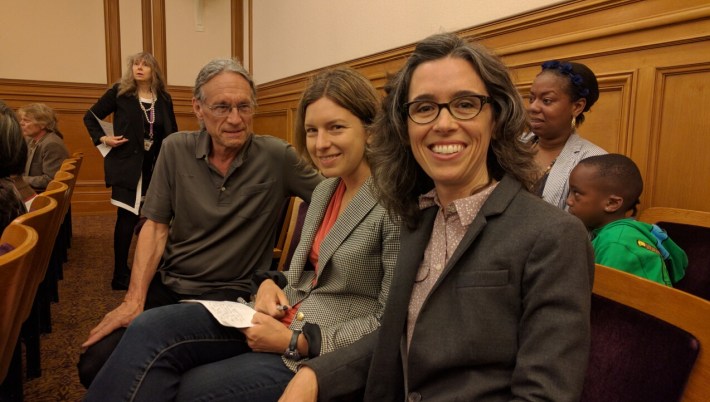
Streetsblog readers will recall that SFMTA plans to use five of the least-used stops on Taraval to try some alternate safety measures to concrete boarding islands, such as painted boarding areas. But removing any boarding islands from the plan does not sit well with livable streets advocates. "Boarding islands are also called 'safety islands' for a reason," said Peter Strauss, a member of the Board of the San Francisco Transit Riders.
Once Rhodes finished his presentation, which took about 15 minutes, the speakers started lining up. Roughly two-thirds were opposed to the changes, which include some stop eliminations, banning through automobile traffic from driving on the tracks, pedestrian bulb outs at corners, removing street parking, sidewalk widening, some additional traffic lights, and, as mentioned, adding concrete boarding islands at most stops.
"This transit-only lane is absolutely ridiculous," said Guido Salomone, age 78, who lives on 25th Avenue, a half-block from Taraval. "Why do we have to block off the lane for a train that’s only running every 20 or 30 minutes?"
Salomone said something else that, in one version or another, came up frequently in the comments. "Part of the problem with accidents [people getting hit as they step off the train] is Muni riders not taking their responsibility. When I was out there I had responsibility. I looked before I stepped out!" he said.
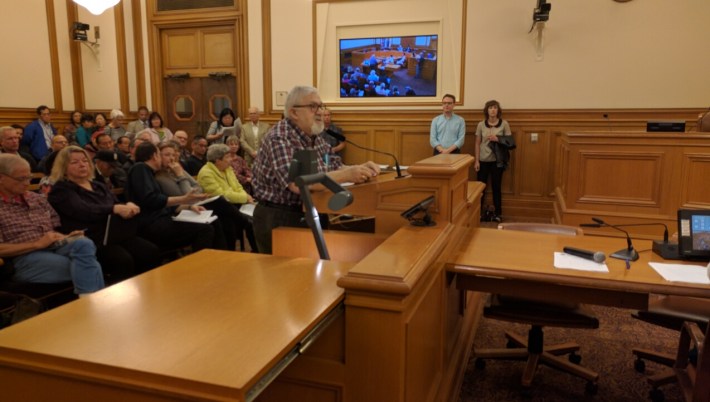
That kind of victim-blaming was a recurrent theme. "I don’t walk with ear buds or with my face in a screen," said another speaker, adding, "When I cross 19th avenue, I’m an informed and aware citizen!"
That sentiment seems misplaced, since it is illegal for a car to pass a stopped streetcar discharging passengers. "Who knew stepping off the L train is one of the most dangerous things riders do every day?" said Julia Fox, another nearby resident. "I witnessed a young woman bounce off the hood of a car. But even I forget. Just Wednesday, I was about to step off on 35th and I was almost hit by a car blasting past. My primal scream...saved other riders. I strongly support the boarding islands," she said.
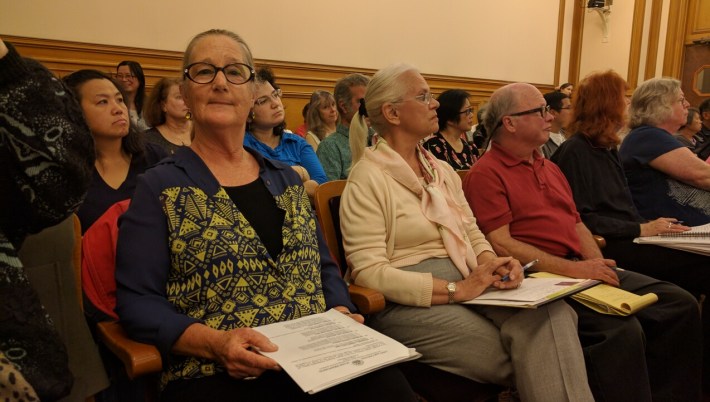
But most speakers were there to object to the project. Evan Rosen, for example, exclaimed that, "Taraval is not Manhattan and we’d like to keep it that way!" Susan Spellman, who lives on Ullola, expressed concern that the changes will push traffic from Taraval to her own street: "People will be slaloming up and down Ullola! The perpendicular parking will make it dangerous to get out of my driveway."
There were also many elderly residents who complained about the elimination of the stop closest to their homes. "Every day I need to go to a senior center for lunch," said Mini Chu. "Removing the bus [sic] stop will cause me lots of inconvenience."
Other livable streets advocates who came to the meeting, however, were on the same page with Strauss and Fox on the boarding islands. "Nobody has been hit at a stop that has a boarding island. We know they work," said Cathy DeLuca, Walk SF Program and Policy Manager. "We don’t have proof that striping will work. I don’t want the city to experiment with people’s lives."
A date for a final vote has not been set, but SFMTA says it will come in September, at the earliest.
